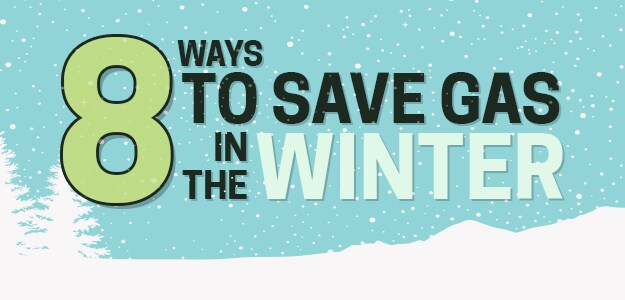Fuel Economy Drops During Cold Winter Months
January 30 2017 - doadmin
Fuel Economy Drops During Cold Winter Months
 Do you ever feel like the fuel economy in your vehicle isn't quite as good during the winter? Well here's why. Based on an analysis conducted by the Oak Ridge National Laboratory, the fuel economy of a traditional vehicle at 20°F will be around 12% less than it is at 77°F. Shorter trips (less than 5 miles), can see even more significant drops during winter months. The effects of cold weather on fuel economy are even worse in Hybrid models with drops in fuel economy up to 34% during winter months.
Do you ever feel like the fuel economy in your vehicle isn't quite as good during the winter? Well here's why. Based on an analysis conducted by the Oak Ridge National Laboratory, the fuel economy of a traditional vehicle at 20°F will be around 12% less than it is at 77°F. Shorter trips (less than 5 miles), can see even more significant drops during winter months. The effects of cold weather on fuel economy are even worse in Hybrid models with drops in fuel economy up to 34% during winter months.
Why is My Gas Mileage Lower in the Winter?
- Your engine takes longer to reach its most efficient temperature in colder weather. This is where those shorter trips really start to make an impact on your gas mileage because your vehicle is spending more time at a less than optimal operating temperature.
- Due to cold engine oil and other decreased drive line fluid temperatures, engine and transmission friction is increased. The more you run a cold engine the worse your fuel economy will be.
- Tire Pressure drops in colder temperatures. This causes more of the tires' surface to actually be touching the pavement at any given time, increasing the overall rolling resistance against your tires.
- Features you don't normally use during warm weather months such as heated seats, window defrosters and heater fans will use additional power in cold driving conditions.
- The act of simply warming up your vehicle before you head out will negatively affect fuel economy as well. An idling engine gets exactly 0 miles per gallon.
- Winter grade gasoline may have slightly less energy per gallon than warm weather blends.
- The decreased grip of your tires on icy or snow-covered roads wastes energy.
- Slick driving conditions cause you to operate lower speeds to maintain proper control
- The use of four wheel drive uses more fuel.